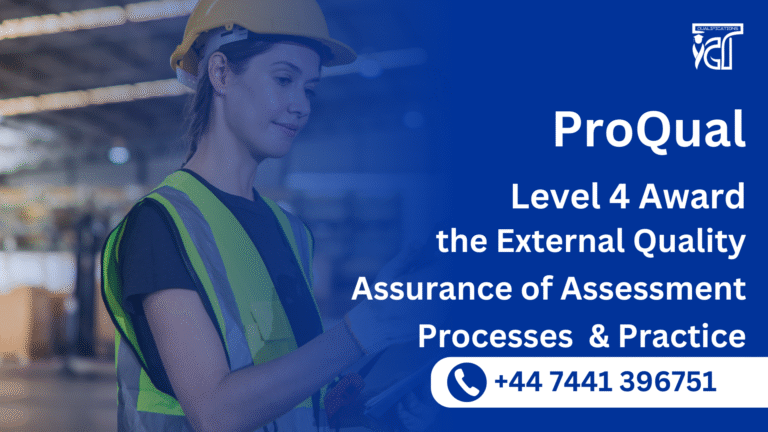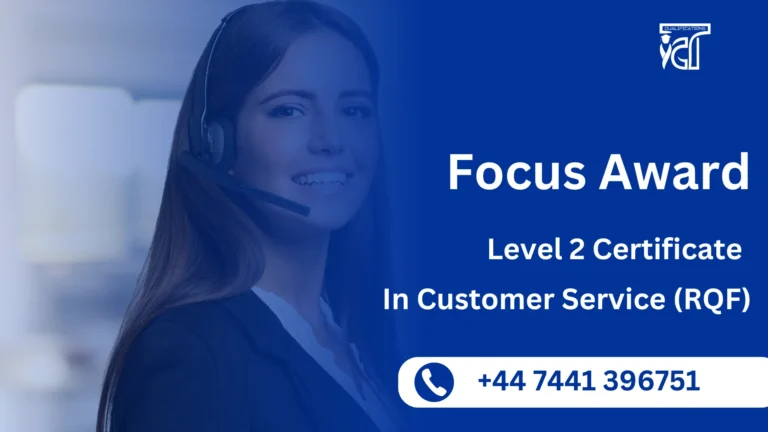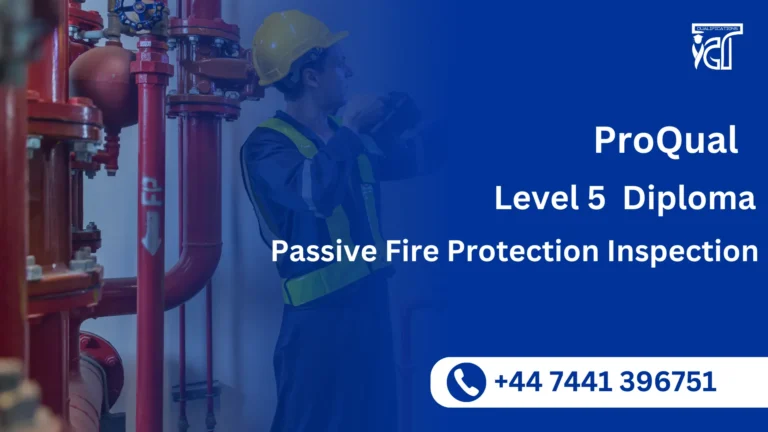The oil and gas industry is one of the most crucial sectors in the global economy, demanding skilled professionals who are well-versed in safety and technical expertise. The ProQual Level 2 Award in Introduction to Well Control and Equipment for Oil and Gas is an Ofqual-regulated qualification designed to provide individuals with essential knowledge in well control operations and equipment handling. This course is ideal for those looking to build a foundation in well control safety, ensuring compliance with industry regulations and best practices.
This qualification is tailored to provide learners with a comprehensive understanding of well control principles, safety procedures, and the operation of oil and gas equipment. Unlike traditional training programs, this award is entirely assignment-based, allowing learners to complete assessments at their own pace without the need for on-site examinations.
The ProQual Level 2 Award in Introduction to Well Control and Equipment for Oil and Gas is a valuable qualification for anyone looking to advance in the industry with a strong foundation in well control and equipment handling. With its Ofqual regulation and assignment-based structure, this course provides a flexible and recognized pathway for professional development in the oil and gas sector.Whether you’re looking to start a career in well control or enhance your existing skills, this qualification offers the perfect stepping stone to achieving your goals.
ProQual Level 2 Award in Introduction to Well Control and Equipment for Oil and Gas
To achieve the ProQual Level 2 Award in Introduction to Well Control and Equipment for Oil and Gas: Candidates must complete the following single Mandatory unit of 50 Guided Learning Hour.
| Sr# | Unit Title |
|---|---|
| 1 | Introduction to Well Control and Equipment for Oil and Gas |
GLH (Guided Learning Hours) and TQT (Total Qualification Time) are terms commonly used in vocational qualifications to help define the amount of time a learner is expected to spend on their studies.
1. GLH (Guided Learning Hours)
GLH refers to the number of hours a learner spends being directly taught, supervised, or supported during their course. This includes the time spent in activities such as:
- Classroom instruction
- Practical workshops
- One-on-one tutoring or mentoring sessions
- Online learning sessions with tutor support
In other words, GLH represents the time that learners are actively engaged with their instructors or learning activities.
2. TQT (Total Qualification Time)
TQT represents the total amount of time a learner is expected to invest in completing a qualification, including:
- GLH (Guided Learning Hours): Time spent on direct learning, as explained above.
- Self-Directed Learning: This includes time spent on independent study, research, assignment completion, preparation for exams, and any other work the learner does outside of direct teaching hours.
TQT is a broader measure that includes all the time required to achieve the qualification. It helps learners and employers understand the overall commitment required for the qualification.
Key Differences Between GLH and TQT:
- GLH focuses on direct learning with guidance or supervision.
- TQT includes GLH as well as independent study time and other learning-related activities.
Example:
If a qualification has a TQT of 600 hours and a GLH of 250 hours, it means the learner should spend 250 hours in direct learning (classroom, online, or tutor-led sessions) and 350 hours on independent study or research.
ProQual Level 2 Award in Introduction to Well Control and Equipment for Oil and Gas
Introduction to Well Control and Equipment for Oil and Gas
- Understand the origin, history and significance of oil and gas.
- Understand the basic principles and procedures for drilling, completions and workover of a well.
- Understand the fundamental principles of maintaining well control and the requisite well control equipment.
- Be introduced to well control procedures and equipment including types of BOPs.
- Understand well intervention and the impact of workovers and completion design to maximizing field production
- Understand possible issues associated with well integrity
Benefits of theProQual Level 2 Award in Introduction to Well Control and Equipment for Oil and Gas
The ProQual Level 2 Award in Introduction to Well Control and Equipment for Oil and Gas provides several key benefits for individuals pursuing a career . Some of the main benefits include:
Self-Paced Learning – Designed for flexibility, this course allows learners to balance their studies with professional and personal commitments without the need for classroom attendance.
Globally Recognized Qualification – As an Ofqual-regulated qualification, this certification is widely accepted in the oil and gas industry, improving job prospects in both local and international markets.
Flexible and Assignment-Based Learning – Unlike traditional courses with timed exams, this award is entirely assignment-based, allowing learners to complete assessments at their own pace, making it ideal for working professionals.
Enhanced Safety Knowledge – The course focuses on well control safety measures, emergency response strategies, and risk mitigation, helping professionals maintain a safe working environment.
Technical Proficiency – Learners gain in-depth knowledge of well control principles, pressure control equipment, and drilling operations, ensuring they are well-prepared for technical roles in the industry.
Improved Career Opportunities – Completing this qualification can lead to career growth in roles such as Well Control Operator, Safety Officer, Oilfield Equipment Technician, and Drilling Assistant.
Industry Compliance and Best Practices – The course ensures that learners understand and adhere to HSE (Health, Safety, and Environment) regulations, industry standards, and operational protocols.
No Examination Stress – Since the qualification is assignment-based, learners can focus on developing practical knowledge without the pressure of traditional examinations.
Ideal for Entry-Level and Experienced Professionals – Whether you’re new to the industry or looking to enhance your existing skills, this qualification provides a solid foundation for career advancement.
Employer-Approved Training – Many oil and gas companies recognize and prefer employees with certified well control training, making this course valuable for job security and promotions.
The ProQual Level 2 Award in Introduction to Well Control and Equipment for Oil and Gas is best suited for:
- Aspiring Oil and Gas Professionals
- Individuals looking to start a career in well control and equipment handling.
- Those with little to no prior experience in the field.
- Current Oilfield Workers
- Professionals already working in the industry who want to upgrade their knowledge of well control.
- Workers seeking better job opportunities or career advancement.
- Technical and Engineering Graduates
- Students or recent graduates looking to specialize in well control operations and equipment management.
- Those wanting to gain industry-recognized certification before applying for jobs.
- Safety Officers and Compliance Personnel
- Professionals responsible for enforcing health, safety, and environmental (HSE) regulations.
- Individuals working in oil and gas safety compliance who need formal training in well control.
- Employers and Training Managers
- Organizations looking to upskill their workforce to enhance safety and regulatory compliance.
- Companies aiming to meet industry standards and reduce risks in well control operations.
- International Job Seekers
- Those planning to work abroad in the oil and gas industry, as this is a globally recognized, Ofqual-regulated qualification.
- Professionals looking to boost their credentials for international job applications.
Entry Requirements
Register Now
Qualification Process
Qualification Process for the ProQual Level 2 Award in Introduction to Well Control and Equipment for Oil and Gas
- Self-Assessment:
Begin by evaluating your eligibility to ensure you meet the qualification requirements, including work experience, knowledge, and language proficiency. - Registration:
Complete your registration by submitting the required documents, including a scanned copy of a valid ID, and paying the registration fee. - Induction:
An assessor will conduct an induction to confirm your eligibility for the course and explain the evidence requirements. If you do not meet the criteria, your registration will be canceled, and the fee will be refunded. - Assignmnets & Evidence Submission:
Provide all assignmnets and the necessary evidence based on the assessment criteria outlined in the course. If you are unsure of the required evidence, consult with the assessor for guidance on the type and nature of evidence needed. - Feedback and Revision:
The assessor will review your submitted evidence and provide feedback. Evidence that meets the criteria will be marked as “Criteria Met,” while any gaps will be identified. You will be asked to revise and resubmit if needed. - Competence Evidence:
Submit final evidence demonstrating that all learning outcomes have been met. This evidence will be marked as “Criteria Met” by the assessor once it is satisfactory. - Internal Quality Assurance (IQA):
The Internal Quality Assurance Verifier (IQA) will review your evidence to ensure consistency, quality, and compliance with standards. - External Verification:
The IQA will submit your portfolio to ProQual’s External Quality Assurance Verifiers (EQA) for final confirmation. The EQA may contact you directly to verify the authenticity of your evidence. - Certification:
Upon successful completion of all checks, ProQual will issue your official certificate, confirming that you have attained the ProQual Level 2 Award in Introduction to Well Control and Equipment for Oil and Gas.







